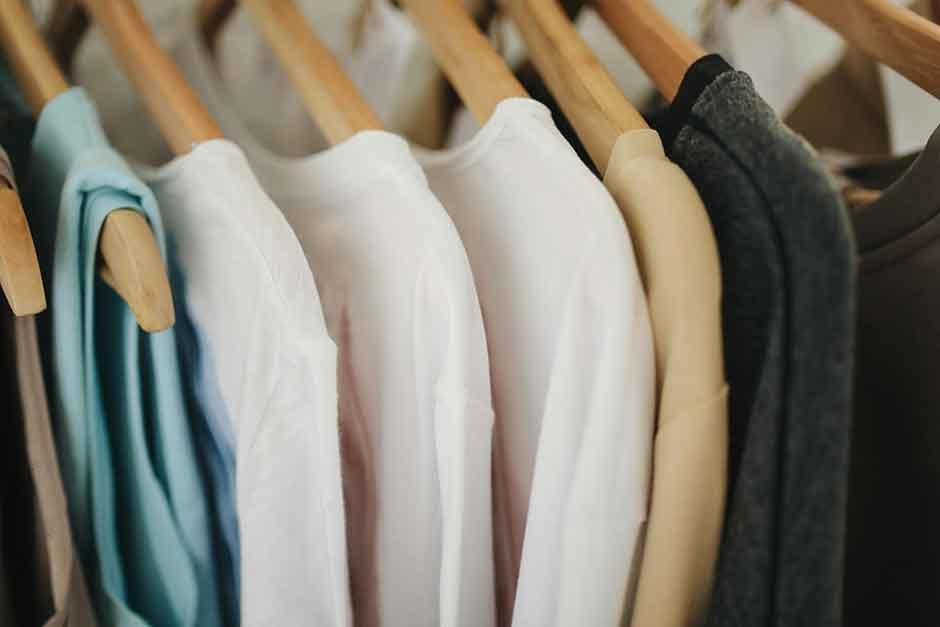More than afterthoughts, custom labels are functional branding instruments. Sustainability at the forefront, environmentally friendly options like cotton labels are increasingly becoming the norm for modern makers.
Independent creators and design labels seek subtle but powerful ways to convey their values. Custom labels for clothing offer more than recognition—it’s a statement. More and more businesses are choosing natural, earth-friendly items to reflect their emphasis on quality and regard for the Earth. Of all these choices, cotton labels, particularly those produced on an environmentally friendly basis, have gained favor.
Making a Lasting First Impression
The first branding touchpoint for any customer who comes into contact with an article of clothing or accessory is often its label. Embedded on its neck, hem, or seam, a single label creates an identity for an article of clothing and portrays professionalism.
Creative businesses, independent fashion start-ups, or artisan manufacturers understand that their design on the tag communicates tone, aesthetics and purpose. Good design for tags creates continuity for the line and adds both perceived and actual worth.
In busy markets, every detail counts. A single label indicates that the designer is not just concerned about how their clothing looks on the outside but also about creating a storyline on the inside.
Environmentally Friendly Cotton Labels Represent Brand Values of Today
Where sustainability is no longer an option for most customers, companies are reconsidering every aspect of their products. Labels, which are often taken for granted, are now receiving equal consideration to clothing choice or packaging. That’s where environmental labels come into play.
Dutch Label Shop is well-known for offering custom cotton clothing labels made from environmentally friendly processes. Their labels are certified OEKO-TEX, which means that they are made without toxins and in strict compliance with safety standards for humans and planet Earth. Such certification is comforting—not only for designers but also for their customers who will be wearing their clothing.
For independent labels, collaborating with an established label source such as Dutch Label Shop lets them have creative control without sacrificing ethics. Whether at scale production or piece-by-piece production, utilizing OEKO-TEX certified cotton labels stands for responsible design and customer safety.
Cotton labels also have an attractive touch and finish that complements minimalist, country, or nature styles exceptionally well. They are multi-purpose, airy and strong and therefore an intelligent choice across segments—from babywear to streetwear and home textiles.
Communicate Your Brand Story
Small labels, but full of intent. Printed, woven, or embroidered, an individual label gives you space to show off brand personality. Some designers use them to add a signature phrase or mantra, while others use care labels to inform their customers, for example, washing dresses on cold to reduce energy usage.
Such communications can also develop an affiliation between buyer and brand, which is ideal for developing brand loyalty. An article of clothing with an unusual or memorable label will most likely be recalled, shared and even talked about.
Creative entrepreneurs will see labels as an extension of their collection of storytelling tools. With proper design elements—typefaces, color, material and script—personal labels can reinforce brand personality and mission, all encapsulated into a single square inch of fabric.
Real-World Applications of Choosing Natural Fibres
Besides the branding and environmentally friendly touch, cotton labels have some practical advantages. They are soft, which is very good for sensitive skin—a consideration especially on baby or children’s clothing labels. They are also very strong and resilient and keep their shape and clarity even after multiple washes.
Cotton labels also print and embroider well, offering very good readability and color stability. Compared to their manmade counterparts, natural fiber labels are also non-irritating to skin and are hence a more comfortable choice for end-users.
Also, cotton labels are flexible in usage; depending on how you create clothing, you can sew them flat, utilize them on loops, or sew them on seams. This adaptability affords creators more freedom in how they outfit clothing with branding without damaging aesthetics and comfort.
From Small Orders to Big Impact
Small businesses all too frequently struggle with the necessity of standing out without the mass or budget of deeper-pocketed competition. One straightforward solution is custom labels. Most label manufacturers carry minimal orders at an affordable price point and that makes it possible for creators at every level, from niche fashion labels to Etsy sellers. Even at low production levels, it’s also possible for brands to show leadership on ethics through the incorporation of sustainability materials like OEKO-TEX certified cotton.
This humble act of tailoring creates uniformity across product lines and compels customers to identify—and return to—a company on which they can depend.
Are Small, Intentional Choices Really That Important?
Today, where authenticity and transparency are leading consumer dictates, information like labeling can be very impactful. These are not obligatory components—they’re a chance to reinforce your brand’s tone and convictions. Cotton eco-labels are a union of form, function and ideology. They’re sensory proof that consideration goes into things sent into the world, from exterior design to interior stitchwork. And where quality suppliers like the Dutch Label Shop offer bespoke choices that are fashionable and green, creative branding’s future is brighter and nicer than ever.










